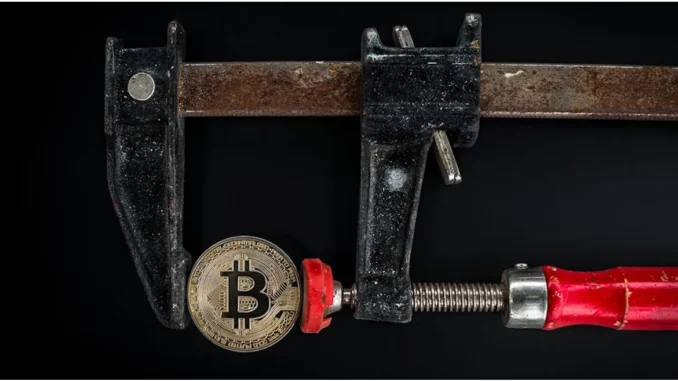
When the Midwest convenience store chain Kwik Trip announced its collaboration with Coinsource to install Bitcoin ATMs across its 800 locations, the news generated significant interest among cryptocurrency enthusiasts and casual shoppers alike. By the end of 2022, customers could purchase Bitcoin as easily as they could pick up a gallon of milk or fill their gas tanks. However, as with many technological advancements, there is a darker side. These Bitcoin ATMs have become a fertile ground for scams, particularly targeting older Americans.
To gain a first-hand perspective on how these machines are impacting communities, I spoke with Sarah Mitchell, a store manager at one of the Kwik Trip locations in Wisconsin. Sarah, who has been with the chain for over a decade, has witnessed numerous technological changes, but the introduction of Bitcoin ATMs has been particularly noteworthy.
“When we first got the Bitcoin ATMs, there was a lot of excitement,” Sarah recalls. “People were curious and fascinated by the idea of buying cryptocurrency at a convenience store. It felt like we were stepping into the future.” Indeed, Bitcoin ATMs have been around for more than a decade, primarily located in busy areas like gas stations and convenience stores. Unlike traditional ATMs that dispense cash, these machines allow consumers to buy and sell cryptocurrency. The move by Kwik Trip followed similar initiatives by other middle American retailers like Circle K and Walmart, reflecting a broader trend of integrating cryptocurrency into everyday transactions.
However, the initial excitement soon gave way to concerns. “It wasn’t long before we started hearing stories about scams,” Sarah says, her expression turning serious. “Some of our older customers, who might not be as tech-savvy, were falling victim to these frauds.” The U.S. Federal Trade Commission (FTC) reported that Americans lost $65 million in the first half of 2024 to scams involving Bitcoin ATMs. Consumers aged 60 and older were more than three times as likely to report losses compared to younger adults, with a median loss of $10,000.
The scams typically exploit the anonymity and irreversible nature of cryptocurrency transactions. A common scenario involves a scammer impersonating a government agent or another authority figure, creating a sense of urgency to persuade the victim to withdraw cash from their bank account. The victim is then instructed to deposit this cash into a Bitcoin ATM, supposedly as a secure way to protect their money. The scammer sends a QR code for the victim to scan at the ATM, transferring the money directly to the scammer’s wallet.
Sarah recounts an incident involving a regular customer, Mr. Thompson, a retiree in his seventies. “Mr. Thompson came into the store looking distraught. He told me he had received a call from someone claiming to be from the IRS, saying he owed back taxes and needed to pay immediately to avoid arrest. They instructed him to withdraw $5,000 and deposit it into the Bitcoin ATM at our store.” Fortunately, Sarah was able to intervene. “I told him that legitimate authorities would never ask for payment through a Bitcoin ATM. We contacted the local police, who confirmed it was a scam.”
The FTC has several recommendations to protect oneself from these kinds of scams. Sarah has made it her mission to inform her customers. “I always tell people, never withdraw cash in response to an unexpected call or message. If someone is asking you to use a Bitcoin ATM for any kind of payment, it’s almost certainly a scam.” The FTC emphasizes that legitimate businesses and government agencies will never ask for cryptocurrency payments. If you receive such a request, it’s a red flag.
Despite the risks, Sarah believes that Bitcoin ATMs can still be a valuable service when used correctly. “It’s all about education. We need to make sure our customers understand the risks and know how to protect themselves.” Kwik Trip has started putting up informational posters near their Bitcoin ATMs and training their staff to recognize potential scam situations. “We’re doing everything we can to ensure our customers are safe. The technology is exciting and has great potential, but we must be vigilant,” Sarah concludes.
As cryptocurrency continues to integrate into everyday life, it is essential for consumers to stay informed and cautious. Bitcoin ATMs offer convenience and innovation, but they also come with risks that cannot be ignored. By understanding the potential pitfalls and remaining alert, we can enjoy the benefits of this new technology while safeguarding ourselves from scams.
John Williams

Be the first to comment